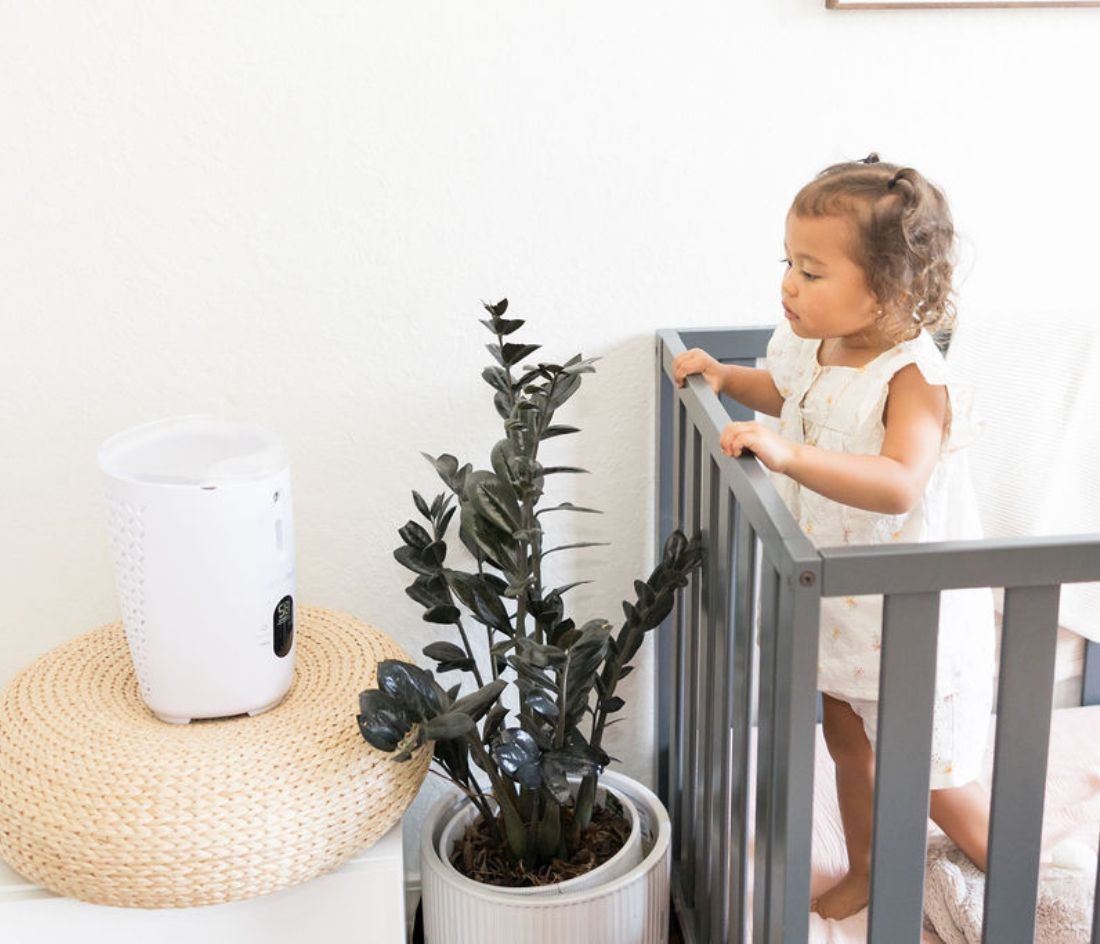Guest Post By Genevieve Kane, MSN, RN
Sleep and babies are a challenging combination. Stanford Children’s explains most babies don’t start sleeping 6-8 hour stretches until they are at least three months old. And at six months, only about two-thirds of babies sleep through the night regularly.
Many things can disrupt a baby’s sleep at night, and teething is one of them. Here we break down why teething may worsen at night, along with a few tips for helping your little one (and you!) get much needed sleep.

Reasons Teething May be Worse at Bedtime
Think about your baby during daytime hours. Chances are high they have plenty of distractions throughout the day. For example, your little one is probably coming with you to run errands, they may have siblings providing entertainment, and there is likely activity happening around them.
At bedtime, those distractions stop. The American Academy of Pediatrics (AAP) explains that teething can start as early as three months old–and that the pain may be bad enough to wake them up.
If your little one feels cranky because of teething pain and has difficulty falling asleep, they may also end up over-tired. An over-tired baby can be harder to get to sleep.
How to Help Your Baby’s Teething Pain
Fortunately, there are many ways to help a teething baby, including with or without pain medication.
Ways to help a teething baby without pain medication, per the AAP, include:
- Sticking to their regular bedtime routine
- Providing plenty of baby safe chewing and teething toys
- Offering soft cold things, such as a damp washcloth that has been placed in the freezer
- Gently massaging your child’s gum with a washed, clean finger
A word of caution: The AAP recommends sticking to plastic and rubber toys designed for babies to chew on and avoid teething necklaces and bracelets. The necklaces can be a strangulation risk, and there have been instances of the beads breaking off and being a choking hazard.

Medications to Help with Teething
If your little one still seems in pain and you’d like to offer pain medication, acetaminophen (also known as Tylenol®) can typically be given. Most pediatrician offices provide parents with information about safe doses of acetaminophen to give babies. If you don’t have this or are unsure if you should give acetaminophen to your baby, reach out to your child’s pediatrician for advice and dosing information.
Depending on your child’s age, ibuprofen (commonly known as Children’s Motrin®) may also be an option. However, ibuprofen typically isn’t given to very young babies. So, check with your child’s pediatrician before giving it.
It’s also important to note that the AAP advises against using pain medications that are rubbed directly on the gums. The reasoning behind this is two-fold. First, the medication is likely ineffective in a teething baby because of all their extra drool. It will get washed away quickly.
Secondly, per the AAP, if swallowed, these medications can numb the back of the throat and cause problems swallowing. Additionally, creams or gels containing the medication benzocaine are not recommended for infants.

If you are enjoying this article, you will also love these from our baby teething series:
- What Parents Need to Know About Teething and Diaper Rash
- How to Tell If Your Baby is Sick or Teething
Key Takeaways
It is hard to see your little one in pain. And it can be incredibly challenging if their pain prevents both of you from getting a good night’s rest.
If you notice your little one’s teething pain interfering with their ability to sleep, consider trying some of these ways to help. However, if your child seems especially fussy, develops a fever or other signs of illness, or you’re otherwise concerned, reach out to your child’s pediatrician for advice.
Genevieve Kane, MSN, RN, is a mother of four and a registered nurse with a background in pediatrics. When she's not working, you can find her cooking up tasty family dinners or keeping up with her kids on a hiking trail in her home state of Colorado.
The Nozebot is a battery-powered suction device designed to clear nasal congestion in babies and children.



